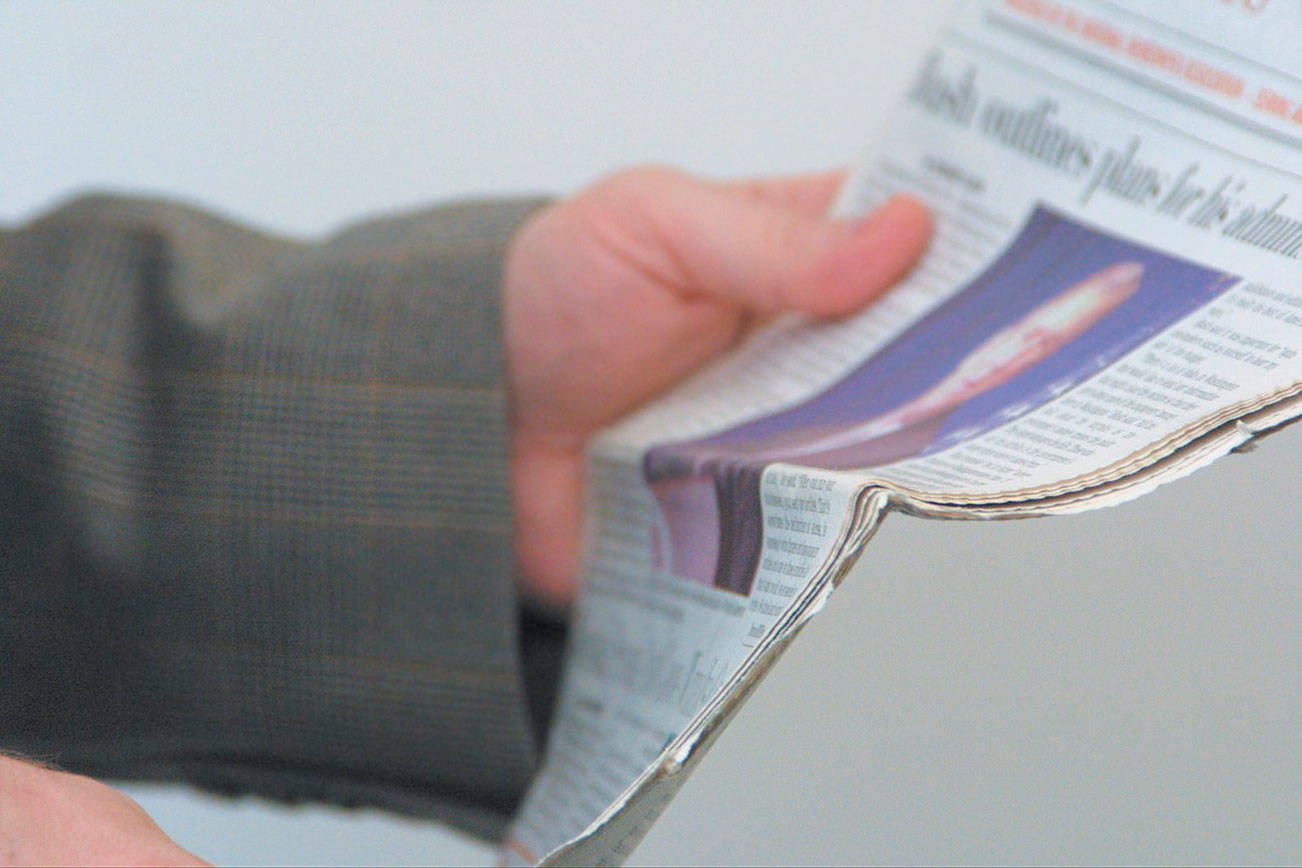Much of the talk about tariffs and trade wars has centered on the Trump administration’s decision to pursue increased taxes on some international supplies of steel and aluminum, and retaliatory tariffs by other countries that could affect a range of U.S. exports and jobs.
But there’s one tariff that has received less attention and could have a damaging effect on what you’re reading right now, whether you’re holding a physical newspaper, a desktop computer mouse or a smartphone.
Since early January, the U.S. Department of Commerce has imposed anti-subsidy and anti-dumping tariffs on newsprint – the paper on which newspapers, directories and other publications are printed – supplied by mills in Canada, tariffs of up to 32 percent.
The resulting increases in prices have pushed up newsprint prices for newspaper publishers by 20 percent to 30 percent. After labor costs – everyone from reporters, ad reps, press operators and others – newsprint is the second largest cost for newspapers.
The tariffs, which have gone into effect while they and the complaint that launched them are reviewed by the U.S. International Trade Commission, have meant an increase in newsprint prices for publishers, whether they are supplied by Canadian or U.S. mills. Prices have increased from about $560 per metric ton in August when the anti-dumping petition was filed to $655 as of February, The Daily News in Longview reported.
And the increased cost cannot be easily absorbed throughout the industry, whether its The New York Times, The (Everett) Herald or The Marysville Globe. But the burden is heaviest for community newspapers, such as The Herald and more than 30 other Sound publications in the state.
As an industry, newspapers and other community media outlets have struggled because of a steady drop in advertising over recent years and the concurrent move by many from physical newspapers to mobile and other online media. For almost all newspapers, the price increases forced by the tariffs will increase pressure on publications to consider raising prices for subscribers and advertisers, cutting the number of pages in publications or even reducing the size of staffs.
The Herald, and its parent company, Sound Publishing, do use some Canadian newsprint, but get most of their paper from the Inland Empire Paper Co., in Spokane. But as other publishers have sought out domestic sources for paper to avoid the tariffs, the supply has tightened and the U.S. suppliers have increased their prices.
Ironically, it’s another Washington mill – or rather, its owner – that has forced the tariffs and increased prices. The complaint of dumping by Canadian mills was launched by NorPac, the North Pacific Paper Co. NorPac owns a mill that employs about 300 people in Longview. NorPac was acquired by a hedge fund, One Rock Capital Partners, in November 2016, which appears to be more concerned with skimming off short-term earnings for its investors than with 300 jobs in Longview or with the health of either the paper industry or that of newspapers that represent hundreds of thousands of jobs.
NorPac was the only company to seek the protection of the tariffs. In fact, the American Forest and Paper Association, the trade association for the paper industry, has opposed NorPac’s petition, The Daily News reported.
The paper industry, like the newspaper industry, has good reason to oppose the tariffs.
The duties, if allowed to continue, will only speed the decrease in demand for newsprint, forcing mills to cut production as newspapers make their own cuts. Whatever benefit the tariffs provide to NorPac will be short-lived for One Rock’s investors, and even shorter for the Longview mill’s employees.
The Herald, like the rest of the news media industry, is making the shift to digital media. That’s a transition that is challenging us to make changes in how we generate revenue and how we deliver the news, entertainment and more to our subscribers.
Even as we make that transition, tens of thousands of our subscribers still prefer a physical newspaper, which continues to generate most of our revenue from print advertisers and subscribers. But we rely on reliable and fairly priced sources of newsprint to provide each day’s newspaper.
We are asking our readers who value journalism and the connection it provides in their community to contact their senators and representatives in Congress and ask for their support in repealing the tariffs.
– Reporter editorial
Talk to us
Please share your story tips by emailing editor@kentreporter.com.
To share your opinion for publication, submit a letter through our website https://www.kentreporter.com/submit-letter/. Include your name, address and daytime phone number. (We’ll only publish your name and hometown.) Please keep letters to 300 words or less.

